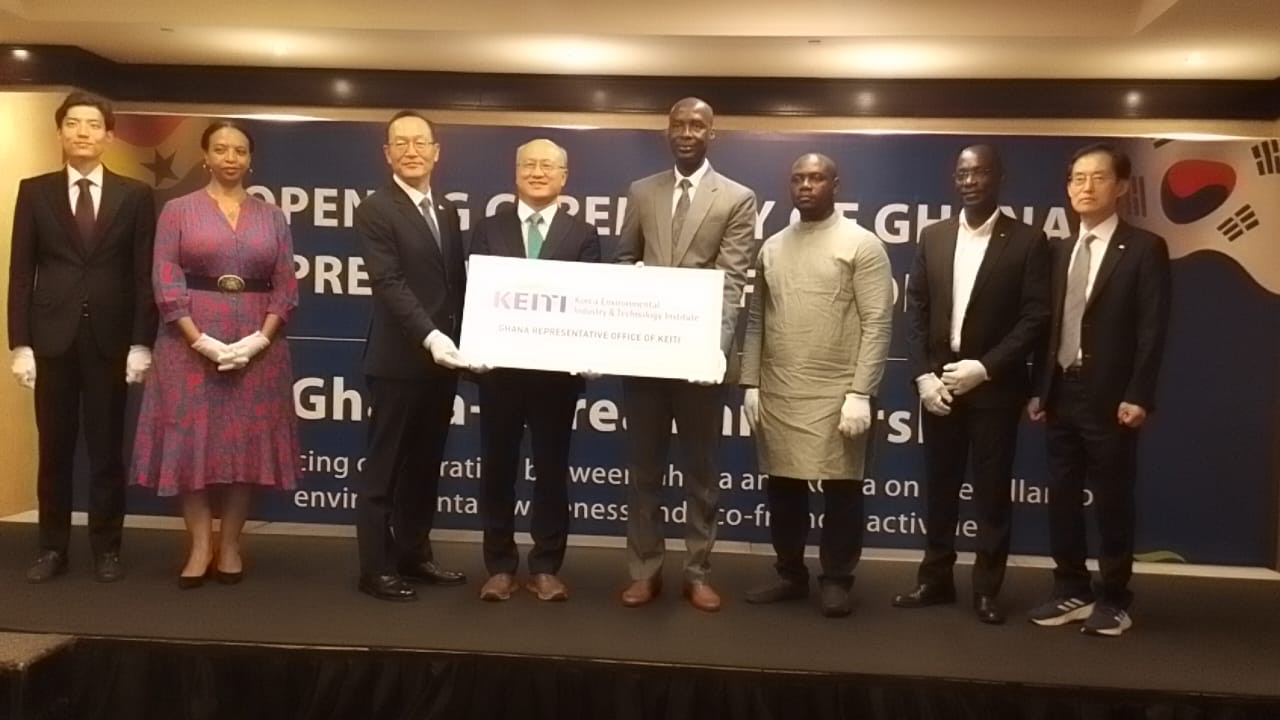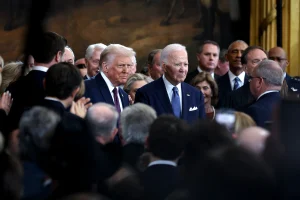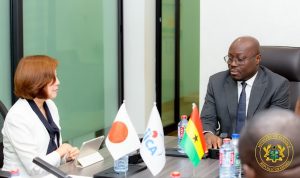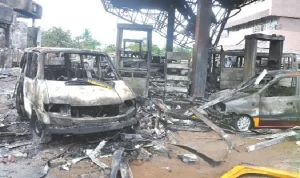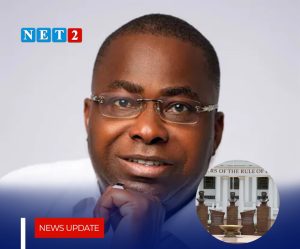The Chief Director of MESTI, Dr. Patrick Nomo who spoke about the importance of the primary purpose of the subsidiary office, said its establishment was to ensure a stable environment for collaboration between the two nations, not only in the area of environmental management but in others such as science, technology and innovation (ST&I) as well as the transition to a circular economy.
He said one of the projects MESTI and the Ministry of Trade and Industry were collaborating with KEITI was on a feasibility study of the entire textiles and apparel value chain in the country.
The Chief Director made this call at a colourful ceremony when the Korean Environmental Industry and Technology Institute opened Ghana’s Representative Office.
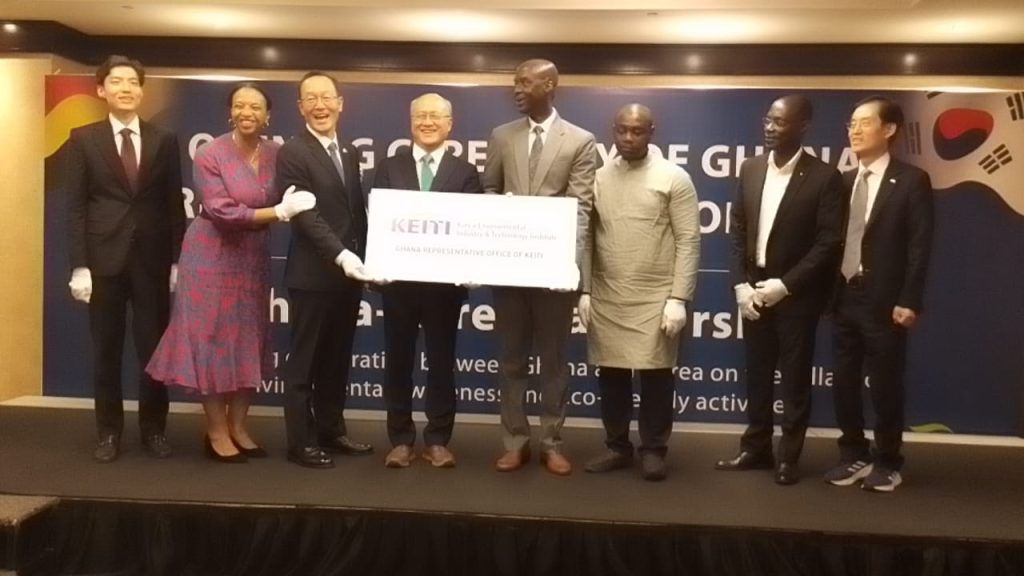
“The goal is to identify the circular business opportunities that can be supported in order to revamp the textiles and apparel industry based on circularity principles and practices,” Dr Nomo added.
The Ambassador of Korea to Ghana, Park Kyongsig, said his country placed a lot of pride on its relationship with Ghana because both nations shared the values of democracy, human rights and the pursuit of a strong economy.
That, he said, was the reason his government continued to establish branches of Korean development institutions such as the Korean International Cooperation Agency( KOICA) across the country, adding, “it looks like a small Korean government has been located in Ghana now”.
The Korea Environmental Industry and Technology Institute (KEITI) has opened a subsidiary office in Accra to enable South Korea to share green technology and expert knowledge with Ghana.
The institute is a quasi-governmental organization affiliated to the Ministry of Environment of the Republic of Korea.
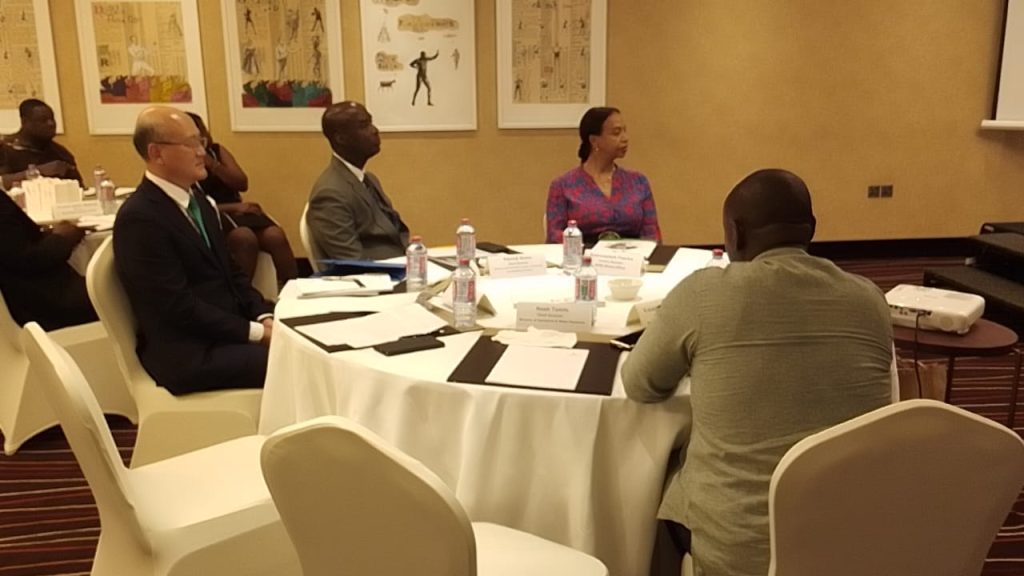
Its core mandate is to establish national environmental research and development plans to facilitate the development and commercialization of cutting-edge green technologies.
In Ghana, it will work with the Ministry of Environment, Science, Technology and Innovation (MESTI) to expand cooperation within the environmental sector between the two nations by promoting and exchanging initiatives.
It will also support the development of environmental projects in Ghana through its overseas programme and cooperation with the World Bank and the Africa Development Bank.
The President of KEITI, Choi Heungjin, described Ghana as one of the African nations with significant growth potential, underpinned by political stability, abundant mineral resources and commitment to sustainable development with key initiatives.
Therefore, he said the office would offer companies insight into Ghana’s environmental policies and market opportunities, aid in government-to-government negotiations and show cooperation via projects such as those involving official development assistance (ODA) as a strategic gateway for entering the African market.
“Ghana is one of 27 priority cooperation countries identified in the Country Partnership Strategy (CPS) for official development assistance. “The Korean government has pledged to double its assistance to Africa by 2030. In the light of this commitment, it’s expected there will be heightened emphasis on projects in climate and environmental cooperation in the coming years.

